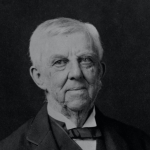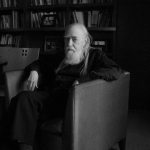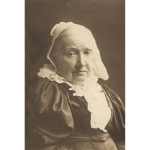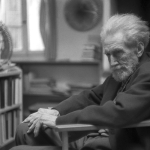“Man wants but little here below”
Little I ask; my wants are few;
I only wish a hut of stone,
(A very plain brown stone will do,)
That I may call my own;—
And close at hand is such a one,
In yonder street that fronts the sun.
Plain food is quite enough for me;
Three courses are as good as ten;—
If nature can subsist on three,
Thank heaven for three. Amen!
I always thought cold victual nice;—
My choice would be vanilla-ice.
I care not much for gold or land;—
Give me a mortgage here and there,—
Some good bank-stock, some note of hand,
Or trifling railroad share,—
I only ask that Fortune send
A little more than I shall spend.
Honors are silly toys, I know,
And titles are but empty names;
I would, perhaps, be Plenipo,—
But only near St. James;
I’m very sure I should not care
To fill our Gubernator’s chair.
Jewels are baubles; ’t is a sin
To care for such unfruitful things;—
One good-sized diamond in a pin,—
Some, not so large, in rings,—
A ruby, and a pearl, or so,
Will do for me;—I laugh at show.
My dame should dress in cheap attire;
(Good, heavy silks are never dear;)—
I own perhaps I might desire
Some shawls of true Cashmere,—
Some marrowy crapes of China silk,
Like wrinkled skins on scalded milk.
I would not have the horse I drive
So fast that folks must stop and stare;
An easy gait—two forty-five—
Suits me; I do not care;—
Perhaps, for just a single spurt,
Some seconds less would do no hurt.
Of pictures, I should like to own
Titians and Raphaels three or four,—
I love so much their style and tone,
One Turner, and no more,
(A landscape,—foreground golden dirt,—
The sunshine painted with a squirt.)
Of books but few,—some fifty score
For daily use, and bound for wear;
The rest upon an upper floor;—
Some little luxury there
Of red morocco’s gilded gleam
And vellum rich as country cream.
Busts, cameos, gems,—such things as these,
Which others often show for pride,
I value for their power to please,
And selfish churls deride;—
One Stradivarius, I confess,
Two Meerschaums, I would fain possess.
Wealth’s wasteful tricks I will not learn,
Nor ape the glittering upstart fool;—
Shall not carved tables serve my turn,
But all must be of buhl?
Give grasping pomp its double share,—
I ask but one recumbent chair.
Thus humble let me live and die,
Nor long for Midas’ golden touch;
If Heaven more generous gifts deny,
I shall not miss them much,—
Too grateful for the blessing lent
Of simple tastes and mind content!














Comment form: